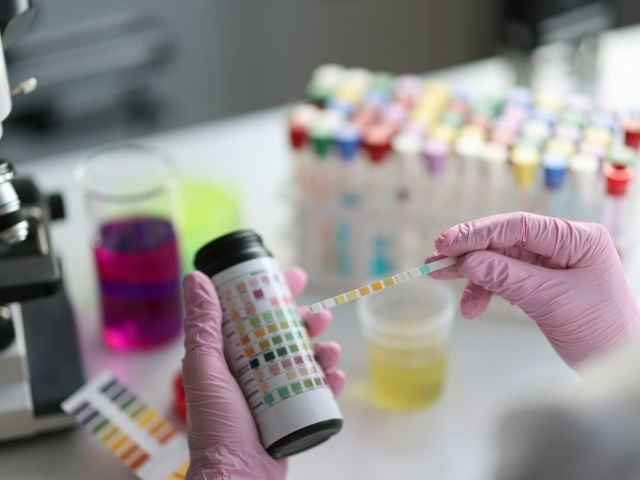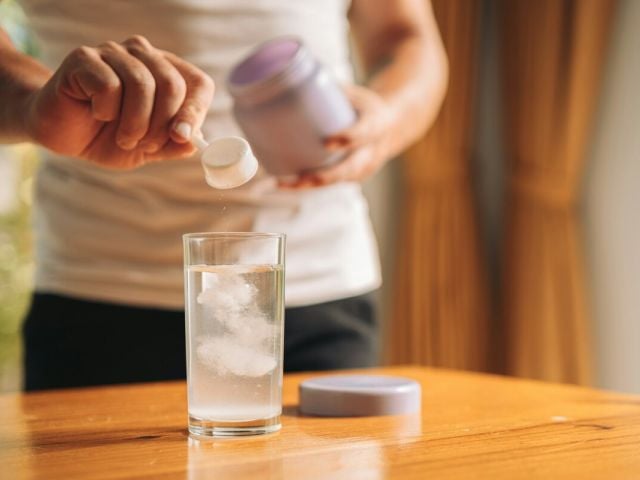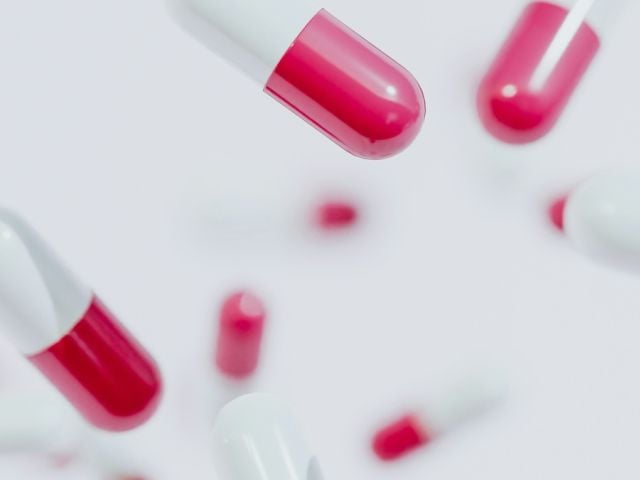
Does Turmeric Lower Cholesterol Levels? What Science Says
High cholesterol affects nearly 94 million American adults. Many people seek natural options to support their cardiovascular health alongside conventional treatments.
Turmeric, a vibrant spice common in Asian dishes and used in traditional medicine for millennia, has become popular for its possible cholesterol-lowering effects.
Curcumin, the active compound in turmeric, has shown potential in clinical studies, but it’s important to be aware of certain limitations in the findings.
This article examines what science actually says about turmeric’s effects on cholesterol levels. You’ll learn about dosage, formulation differences, and how this ancient spice compares to prescription medications.
Key Takeaways
- Studies suggest that turmeric and curcumin may slightly decrease LDL cholesterol and triglycerides by about 5-15%, with the most compelling results observed in individuals with metabolic syndrome or type 2 diabetes.
- Curcumin functions by inhibiting cholesterol synthesis, decreasing intestinal uptake, boosting elimination, and stopping damaging LDL oxidation.
- Improved absorption formulas containing black pepper extract or phospholipids are necessary because regular turmeric powder is not easily absorbed by the body.
- Although showing potential, turmeric is not as potent as statins and should not substitute prescribed cholesterol medications without consulting a healthcare professional.
Does Turmeric Lower Cholesterol Levels?
Multiple systematic review and meta-analysis studies have examined curcumin’s impact on lipid profiles.
A 2023 umbrella review analyzing 72 randomized controlled trials found that curcumin supplementation reduced several cholesterol markers1.
The review reported total cholesterol decreased by 7.76 mg/dL and LDL cholesterol dropped by 4.89 mg/dL. Triglycerides lowered by 6.69 mg/dL while HDL cholesterol (the “good” kind) increased by 1.80 mg/dL.
A 2019 meta-analysis of randomized trials involving 1,142 participants showed turmeric reduced triglycerides by 19.1 mg/dL and total cholesterol by 11.4 mg/dL compared to placebo2.
Another review of seven studies with 649 patients demonstrated that the spice lowered both low-density lipoprotein and triglyceride levels3.
| Study Type | Cholesterol Change | Study Population |
|---|---|---|
| 72-trial umbrella review | LDL: -4.89 mg/dL, TG: -6.69 mg/dL | Mixed populations |
| 14-trial meta-analysis | Total: -11.4 mg/dL, TG: -19.1 mg/dL | 1,142 participants |
| 7-trial review | LDL and TG reduced significantly | 649 patients |
The picture isn’t entirely clear cut. Some studies report no statistically significant effects on cholesterol. A 2014 meta-analysis concluded that curcumin supplementation had “apparently no effect” on lipid levels4.
These inconsistencies stem from variations in study design. Dosages ranged from 45 mg to 6,000 mg daily, durations varied from 11 days to 24 weeks, and formulation types differed widely. One comprehensive review assessed the evidence quality as “low” to “very low” for most outcomes5.
How Turmeric May Help Lower Cholesterol
Curcumin influences cholesterol through several biological mechanisms. The compound works at different stages of cholesterol metabolism.
1. Blocks Cholesterol Production
Curcumin suppresses HMG-CoA reductase, the rate-limiting enzyme in cholesterol synthesis. This is the same target as statin drugs.
Animal studies show curcumin downregulates this enzyme along with other cholesterol synthesis genes6. By interfering with this production pathway, less cholesterol gets manufactured in the liver.
2. Reduces Intestinal Absorption
Research demonstrates that curcumin inhibits Niemann-Pick C1-Like 1 (NPC1L1). This protein handles cholesterol uptake in your intestines7.
By blocking NPC1L1, curcumin reduces the amount of dietary cholesterol your body absorbs from food. Less absorption means lower cholesterol entering your bloodstream.
3. Increases Cholesterol Excretion
Curcumin stimulates bile acid production, which helps eliminate cholesterol from your body8. Studies show it increases expression of cholesterol 7α-hydroxylase, the enzyme that converts cholesterol to bile acids.
The compound also upregulates LDL receptors in the liver. More receptors mean better removal of low-density lipoprotein from your blood.
In macrophages and foam cells (key players in atherosclerosis), curcumin influences specific pathways that promote cholesterol efflux9. This prevents cellular cholesterol accumulation.
4. Prevents LDL Oxidation
Curcumin’s antioxidant properties prevent LDL oxidation, a step in atherosclerotic plaque formation. A 1997 study showed that daily turmeric intake decreased HDL and LDL peroxidation levels significantly10.
Oxidized LDL is more dangerous than regular LDL. It damages artery walls and triggers inflammation. By preventing this oxidation, curcumin may offer cardiovascular protection beyond simple cholesterol lowering.
One study found curcumin reduced small dense LDL particles, the most harmful LDL subtype11. These particles penetrate artery walls more easily and are highly atherogenic.
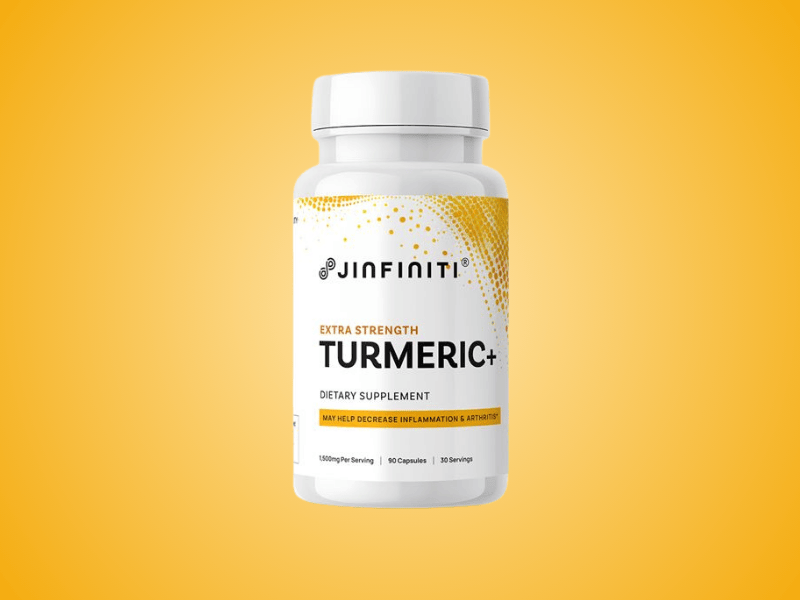
Should You Consider Turmeric for High Cholesterol?
Not everyone responds equally to turmeric supplementation. Research shows certain groups experience more pronounced effects on their lipid profile.
People with metabolic syndrome see particularly strong results. One meta-analysis found the spice could lower total cholesterol significantly in this population with an effect size of -0.93412.
Groups with strongest evidence:
- Adults with metabolic syndrome
- People with type 2 diabetes
- Those at cardiovascular disease risk
- Adults over 50 with existing heart concerns
- Individuals experiencing chronic inflammation
Multiple studies in type 2 diabetes patients have shown improvements in cholesterol levels13. Reductions occurred in total cholesterol, LDL, and triglycerides, though HDL results remained mixed.
Research indicates that curcumin supplementation at 850 mg daily for over 10 weeks was most effective in adults over 50 years with coronary artery disease14. This dosage and duration showed a “large effect size” on LDL reduction.
One study in middle-aged women combining curcumin with exercise showed improvements in waist circumference, insulin resistance, and high-density lipoprotein levels15. The combination approach may amplify benefits.
Evidence is less compelling for healthy people with normal cholesterol. A study of low-dose curcumin in healthy middle-aged adults found “diverse effects” on wellness measures but didn’t demonstrate significant cholesterol changes16.
One clinical trial showed that 500 mg daily reduced cholesterol by 17% in healthy subjects after just seven days17. This was a short-term study requiring longer validation.
Dosage and Formulation Guidelines
The efficacy of turmeric depends heavily on how much you take and what form you choose. Clinical trials have tested a range of turmeric doses with varying results.
Interestingly, one study found that 500 mg daily was more effective than 6,000 mg daily for lowering cholesterol. Higher doses aren’t necessarily better with this spice.
Most research showing positive effects used 500-1,000 mg of curcumin daily. This range appears optimal for cholesterol management based on current evidence.
Most studies showing health benefits of turmeric lasted 8-12 weeks. Effects appear to accumulate over time, with some research suggesting efficacy increases with longer use.
Choosing the Right Form
Standard turmeric powder contains only 2-5% curcumin. This presents challenges for therapeutic dosing.
Concentrated curcumin extracts provide higher amounts of the active ingredient. These standardized supplements list the curcumin content on the label, making dosing more precise.
Some formulations use whole turmeric that recreates the natural matrix. These may offer advantages over isolated curcumin by including other bioactive compounds from the spice.
Bioavailability Enhancement
A major challenge with curcumin is its poor bioavailability. Your body absorbs very little when consumed in natural form.
Modern formulations address this through various technologies. The enhancement method makes a substantial difference in effectiveness.
Enhancement approaches and absorption improvements:
| Method | Bioavailability Increase |
|---|---|
| With piperine (black pepper) | 20-fold (2,000%) |
| Phospholipid complexes | 29-fold |
| Nanoparticle formulations | 22 to 45.9-fold |
| Liposomal curcumin | 7.76-fold |
| Proprietary blends | 5.5 to 7.3-fold |
Black pepper extract containing piperine is the most common enhancement. It blocks curcumin metabolism in the liver and intestines, allowing more to reach your bloodstream.
Phospholipid complexes bind curcumin to fats, improving absorption since curcumin is fat-soluble. Nanoparticle and liposomal formulations create tiny particles that penetrate cell membranes more easily.
Research consistently shows enhanced formulations produce superior results for cholesterol management. When choosing a supplement, look for products that specify their bioavailability enhancement method.
Taking curcumin with fat-containing foods also boosts absorption. Consider timing your supplement with meals that include healthy oils or fats.
Turmeric vs. Statin Medications
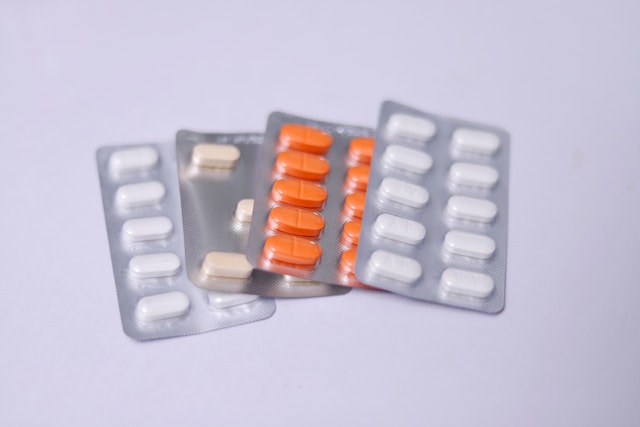
While turmeric shows cholesterol-lowering properties, its effects are modest compared to statin drugs. This comparison provides important context for your expectations.
Statins typically reduce LDL cholesterol by 30-50%. Curcumin produces reductions of approximately 5-15% in most studies. That’s a substantial difference in magnitude.
A 2022 American Heart Association-backed study compared six popular supplements to statin drugs. Rosuvastatin lowered LDL cholesterol by almost 38%, described as “vastly superior” to any supplement tested.
The British Heart Foundation states there is “no strong evidence to support the claims that turmeric supplements are good for your heart,” though they acknowledge some studies have shown positive results.
Turmeric offers potential advantages despite lower efficacy:
- Multiple mechanisms: Affects absorption, synthesis, excretion, and oxidation (not just one pathway)
- Anti-inflammatory effects: May provide cardiovascular protection beyond cholesterol reduction
- Antioxidant properties: Prevents LDL oxidation and reduces oxidative stress
- Favorable safety profile: Generally well-tolerated with few serious adverse events
- Potential combination benefits: May boost statin effectiveness when used together
Researchers at UConn are investigating whether curcumin can help patients experiencing statin-associated muscle symptoms. Researcher Oh Sung Kwon hypothesizes that “combined curcumin and statin treatment will be more effective at lowering LDL-C than those taking only statins” while potentially reducing muscle-related side effects.
One animal study combining curcumin with reduced-dose rosuvastatin found “better renal protection” and “better antilipemic action” than either treatment alone18. The combination lowered triglycerides, VLDL, and LDL more effectively.
You should view turmeric as a complementary approach, not a replacement for prescribed medications. If your doctor recommends statins based on your cardiovascular risk factors, turmeric cannot substitute for that level of cholesterol reduction.
Safety and Drug Interactions
Curcumin is generally considered safe with most clinical trials reporting no serious adverse events. Understanding potential side effects and interactions helps you use it responsibly.
The safety profile appears favorable compared to many pharmaceutical options. Most people tolerate turmeric supplementation well at recommended doses.
Possible Side Effects
At high doses, some people may experience mild digestive symptoms. These effects are typically temporary and resolve when you reduce the dose.
Possible side effects include:
- Nausea and digestive upset
- Diarrhea or constipation
- Stomach pain
- Skin rash
- Headaches
These reactions are uncommon at therapeutic doses of 500-1,000 mg daily. Higher doses increase the likelihood of side effects.
Some evidence suggests potential liver effects at very high doses19. One case series documented liver injury in individuals taking high-dose turmeric products, though causation wasn’t definitively established.
Turmeric may increase kidney stone risk in susceptible individuals due to oxalate content. If you have a history of kidney stones, consult your doctor before supplementation.
Important Drug Interactions
Turmeric can interact with several medications. These interactions may enhance or reduce drug effects, potentially causing problems.
Medications that may interact with turmeric:
- Blood thinners (warfarin, aspirin, clopidogrel): Turmeric has anticoagulant properties and may increase bleeding risk
- Diabetes medications: May enhance blood sugar-lowering effects, potentially causing hypoglycemia
- Blood pressure medications (amlodipine, losartan): May intensify blood pressure reduction
- Chemotherapy drugs: May interfere with certain cancer treatments
- Tacrolimus: Curcumin may increase side effects
The anti-inflammatory and antioxidant effects of curcumin can influence how your body processes medications. This isn’t necessarily dangerous, but it requires monitoring.
Turmeric may reduce iron absorption when taken with iron supplements. Separate timing by a few hours if you take both.
Always consult a healthcare provider before adding turmeric supplements, especially if you take medications or have existing health conditions. This conversation helps prevent interactions and ensures safe use.
Practical Tips for Using Turmeric
If you’re considering turmeric for cholesterol management, several practical strategies can help you get the best results. Start with medical guidance.
Before starting supplementation:
- Discuss with your doctor, especially if taking medications
- Get a baseline lipid panel to measure starting cholesterol levels
- Choose high quality turmeric formulations with piperine, phospholipids, or nanoparticle technology
- Look for third-party testing (NSF, USP certification) to ensure quality and purity
- Start with 500-1,000 mg curcumin daily, taken with food containing fat
Give supplementation adequate time. Most studies showing cholesterol benefits lasted 8-12 weeks. Don’t expect overnight results.
Get follow-up lipid panels after 8-12 weeks to assess effectiveness. This data-driven approach lets you track whether turmeric is working for you. The approach aligns with precision medicine principles.
Red flags to avoid:
- Supplements without clear curcumin content labeling
- Products making unrealistic health claims
- Very cheap formulations (may contain fillers or contaminants)
- Supplements without bioavailability enhancement
Beyond supplements, incorporating turmeric or curcumin into your diet alongside other cholesterol-supporting foods may provide additional benefits. Add the spice to curries, soups, smoothies, or roasted vegetables.
Taking turmeric with black pepper (even just a pinch) dramatically increases absorption. Many recipes naturally combine these spices.
Combine turmeric with comprehensive lifestyle approaches. No supplement replaces the benefits of healthy eating, regular exercise, stress management, and adequate sleep for cardiovascular health.
Consider other natural approaches that support heart health. NAD+ supplementation supports cellular energy production, which plays a role in metabolic health. Anti-inflammatory herbs and spices work well alongside turmeric.
Don’t replace proven medical treatments. Use turmeric as a complement to, not substitute for, medical care recommended by your healthcare provider.
The Bottom Line
Research suggests turmeric and its active ingredient curcumin can modestly help lower cholesterol levels, particularly LDL and triglycerides.
The evidence is strongest for people with metabolic syndrome, type 2 diabetes, or existing cardiovascular disease risk factors using enhanced-absorption formulations at 500-1,000 mg daily for at least 8-12 weeks.
The effects are real but modest, typically producing 5-15% reductions compared to the 30-50% reductions seen with statin medications.
Turmeric’s value lies in its multi-targeted approach affecting cholesterol synthesis, absorption, excretion, and oxidation, combined with anti-inflammatory and antioxidant properties that may provide broader cardiovascular protection.
Curcumin supplements are an accessible, generally safe, low-cost option worth considering as part of a holistic strategy for managing cholesterol and reducing cardiovascular diseases risk when used under medical guidance.
References Sourced
- https://academic.oup.com/nutritionreviews/article/83/8/1520/8053000 ↩︎
- https://pmc.ncbi.nlm.nih.gov/articles/PMC5637251/ ↩︎
- https://pmc.ncbi.nlm.nih.gov/articles/PMC6743846/ ↩︎
- https://pmc.ncbi.nlm.nih.gov/articles/PMC4403064/ ↩︎
- https://pubmed.ncbi.nlm.nih.gov/37230418/ ↩︎
- https://pmc.ncbi.nlm.nih.gov/articles/PMC10863436/ ↩︎
- https://pmc.ncbi.nlm.nih.gov/articles/PMC2865464/ ↩︎
- https://pmc.ncbi.nlm.nih.gov/articles/PMC2895698/ ↩︎
- https://www.nature.com/articles/aps200865.pdf ↩︎
- https://pmc.ncbi.nlm.nih.gov/articles/PMC3455890/ ↩︎
- https://pmc.ncbi.nlm.nih.gov/articles/PMC4251480/ ↩︎
- https://nutritionj.biomedcentral.com/articles/10.1186/s12937-017-0293-y ↩︎
- https://pmc.ncbi.nlm.nih.gov/articles/PMC9232354/ ↩︎
- https://extendedstudies.ucsd.edu/getattachment/cbbb0cbf-1a09-4845-a787-af7b665e9a0b/rme_24_11_2_060-073.pdf?lang=en-US ↩︎
- https://pmc.ncbi.nlm.nih.gov/articles/PMC7118005/ ↩︎
- https://pmc.ncbi.nlm.nih.gov/articles/PMC3518252/ ↩︎
- https://escholarship.org/content/qt5cb0m7t4/qt5cb0m7t4_noSplash_a159bbf7bd214da9716d1c77312d6317.pdf ↩︎
- https://pmc.ncbi.nlm.nih.gov/articles/PMC12042680/ ↩︎
- https://jhrlmc.com/index.php/home/article/view/1159 ↩︎

Get weekly health insights and exclusive offers by joining our newsletter.


